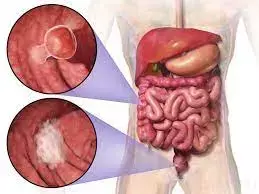- Home
- Medical news & Guidelines
- Anesthesiology
- Cardiology and CTVS
- Critical Care
- Dentistry
- Dermatology
- Diabetes and Endocrinology
- ENT
- Gastroenterology
- Medicine
- Nephrology
- Neurology
- Obstretics-Gynaecology
- Oncology
- Ophthalmology
- Orthopaedics
- Pediatrics-Neonatology
- Psychiatry
- Pulmonology
- Radiology
- Surgery
- Urology
- Laboratory Medicine
- Diet
- Nursing
- Paramedical
- Physiotherapy
- Health news
- Fact Check
- Bone Health Fact Check
- Brain Health Fact Check
- Cancer Related Fact Check
- Child Care Fact Check
- Dental and oral health fact check
- Diabetes and metabolic health fact check
- Diet and Nutrition Fact Check
- Eye and ENT Care Fact Check
- Fitness fact check
- Gut health fact check
- Heart health fact check
- Kidney health fact check
- Medical education fact check
- Men's health fact check
- Respiratory fact check
- Skin and hair care fact check
- Vaccine and Immunization fact check
- Women's health fact check
- AYUSH
- State News
- Andaman and Nicobar Islands
- Andhra Pradesh
- Arunachal Pradesh
- Assam
- Bihar
- Chandigarh
- Chattisgarh
- Dadra and Nagar Haveli
- Daman and Diu
- Delhi
- Goa
- Gujarat
- Haryana
- Himachal Pradesh
- Jammu & Kashmir
- Jharkhand
- Karnataka
- Kerala
- Ladakh
- Lakshadweep
- Madhya Pradesh
- Maharashtra
- Manipur
- Meghalaya
- Mizoram
- Nagaland
- Odisha
- Puducherry
- Punjab
- Rajasthan
- Sikkim
- Tamil Nadu
- Telangana
- Tripura
- Uttar Pradesh
- Uttrakhand
- West Bengal
- Medical Education
- Industry
Laparoscopy does not reduce RBC transfusion need after colorectal cancer surgery

Laparoscopy does not influence postoperative requirements for RBC transfusions after elective colorectal surgery, according to a recent study published in the BMC Surgery.
Patients with colorectal tumour often present with anaemia, and up to 60% will receive red blood cells (RBC) transfusion. Some evidence suggests a correlation between RBC transfusion and worse outcomes. Since laparoscopy minimizes intraoperative blood loss, we retrospectively investigated its role in reducing haemoglobin (Hb) drop and requirements for postoperative RBC transfusions.
Patients were identified from consecutive cases undergone elective surgery for non-metastatic colorectal tumour between 2005 and 2019. Laparoscopic cases were matched 1:1 with open controls through propensity score matching (PSM). The main outcome measures were postoperative Hb drop and requirement for RBC. The secondary aim was evaluation of risk factors for postoperative RBC transfusions.
Results of the study are:
After application of PSM, 364 patients treated by laparoscopy were matched with 364 patients undergone open surgery. The two groups presented similar clinical and pathological characteristics, as well as comparable postoperative outcomes. 56 patients in the open group and 47 in the laparoscopic group required postoperative RBC (P = 0.395). No difference was observed in terms of mean number of RBC units (P = 0.608) or Hb drop (P = 0.129). Logistic regression analysis identified preoperative anaemia and occurrence of postoperative complications as relevant risk factors for postoperative RBC transfusion, while surgical approach did not prove statistically significant.
Thus, laparoscopy did not influence postoperative requirements for RBC transfusions after elective colorectal surgery. Preoperative anaemia and occurrence of postoperative complications represent the major determinants for postoperative transfusions after open as well as laparoscopic surgery.
Reference:
Laparoscopic surgery does not reduce the need for red blood cell transfusion after resection for colorectal tumour: a propensity score match study on 728 patients by Giulia Turri, et al. published in the BMC Surgery.
https://bmcsurg.biomedcentral.com/articles/10.1186/s12893-022-01569-0
Keywords:
Laparoscopic surgery, Laparoscopic surgery, Giulia Turri, Giovanni Malerba, Gabriele Gecchele, Cristian Conti, Federica Randon, Pierluigi Piccoli, Giorgio Gandini, Domenico Girelli, Alfredo Guglielmi & Corrado Pedrazzani, BMC Surgery, colorectal tumour, patients, anaemia, RBC transfusions
Dr. Shravani Dali has completed her BDS from Pravara institute of medical sciences, loni. Following which she extensively worked in the healthcare sector for 2+ years. She has been actively involved in writing blogs in field of health and wellness. Currently she is pursuing her Masters of public health-health administration from Tata institute of social sciences. She can be contacted at editorial@medicaldialogues.in.
Dr Kamal Kant Kohli-MBBS, DTCD- a chest specialist with more than 30 years of practice and a flair for writing clinical articles, Dr Kamal Kant Kohli joined Medical Dialogues as a Chief Editor of Medical News. Besides writing articles, as an editor, he proofreads and verifies all the medical content published on Medical Dialogues including those coming from journals, studies,medical conferences,guidelines etc. Email: drkohli@medicaldialogues.in. Contact no. 011-43720751


